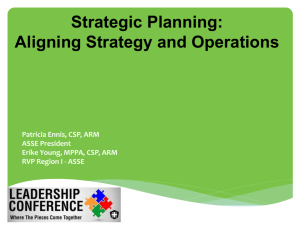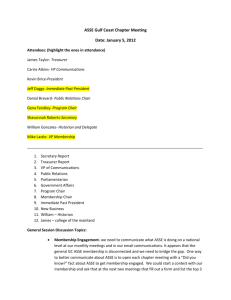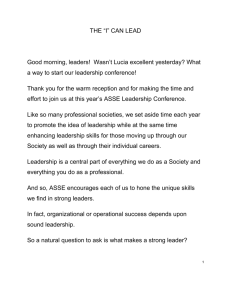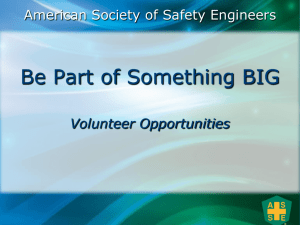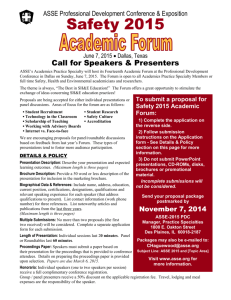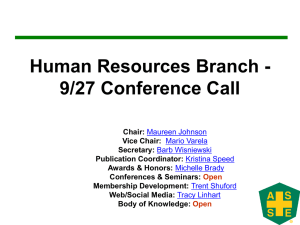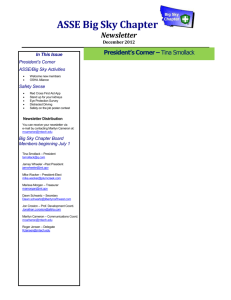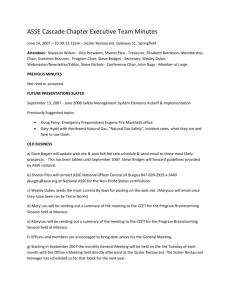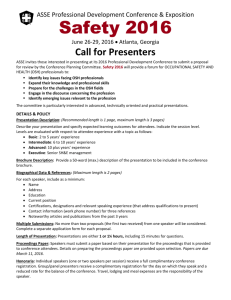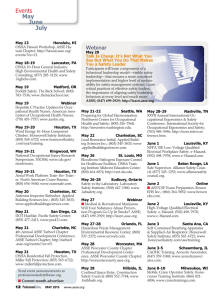AMERICAN SOCIETY OF SAFETY ENGINEERS
advertisement
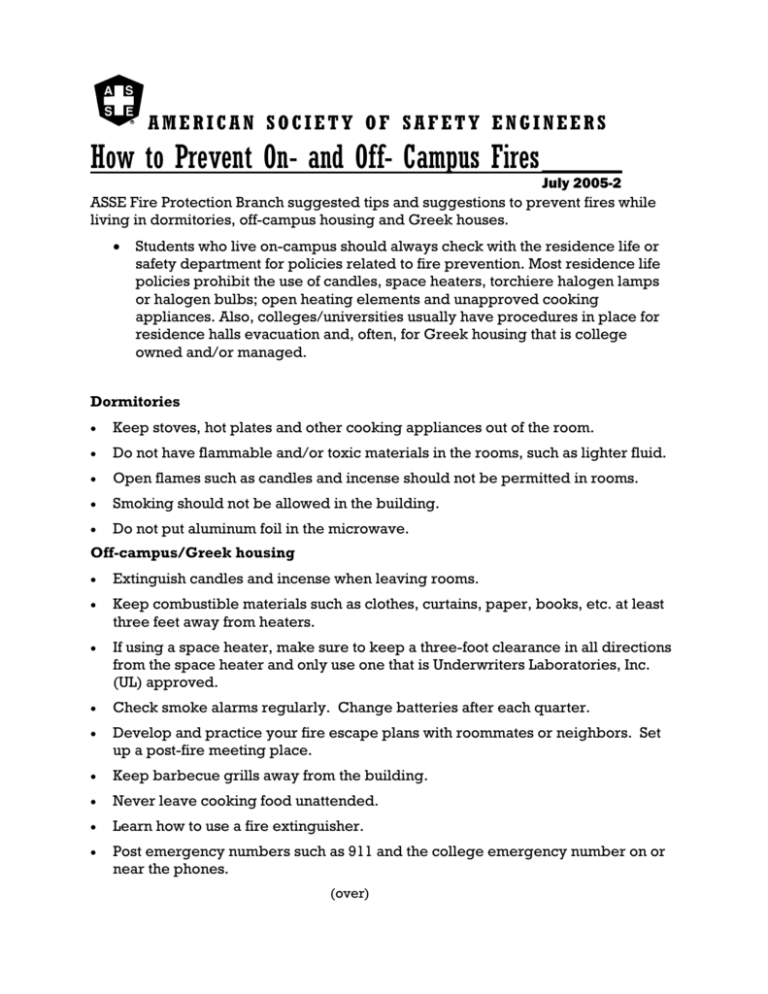
AMERICAN SOCIETY OF SAFETY ENGINEERS How to Prevent On- and Off- Campus Fires _____ July 2005-2 ASSE Fire Protection Branch suggested tips and suggestions to prevent fires while living in dormitories, off-campus housing and Greek houses. Students who live on-campus should always check with the residence life or safety department for policies related to fire prevention. Most residence life policies prohibit the use of candles, space heaters, torchiere halogen lamps or halogen bulbs; open heating elements and unapproved cooking appliances. Also, colleges/universities usually have procedures in place for residence halls evacuation and, often, for Greek housing that is college owned and/or managed. Dormitories Keep stoves, hot plates and other cooking appliances out of the room. Do not have flammable and/or toxic materials in the rooms, such as lighter fluid. Open flames such as candles and incense should not be permitted in rooms. Smoking should not be allowed in the building. Do not put aluminum foil in the microwave. Off-campus/Greek housing Extinguish candles and incense when leaving rooms. Keep combustible materials such as clothes, curtains, paper, books, etc. at least three feet away from heaters. If using a space heater, make sure to keep a three-foot clearance in all directions from the space heater and only use one that is Underwriters Laboratories, Inc. (UL) approved. Check smoke alarms regularly. Change batteries after each quarter. Develop and practice your fire escape plans with roommates or neighbors. Set up a post-fire meeting place. Keep barbecue grills away from the building. Never leave cooking food unattended. Learn how to use a fire extinguisher. Post emergency numbers such as 911 and the college emergency number on or near the phones. (over) Avoid hanging combustible materials such as blankets, drapes, rugs, etc., on the walls, over beds, in hallways or on ceilings. Use artificial trees for the holiday season. Keep exterior fire escape doors unlocked, closed and accessible at all times. Arrange furniture to provide a clear way to the exit ways. Know the exit ways nearest you well enough so that if a fire hits, you will know how far you must go to escape. Practice fire drills regularly and learn to use the fire safety equipment. Place smoking materials in a non-combustible container. Do not place in plastic cups or other combustible containers. Inspect furniture for discarded smoking material after all parties. Electrical Safety Replace or repair loose or frayed cords on all electrical devices. Use power strips with breaker protection. Each power strip must be plugged in directly in a wall outlet and not piggybacked with another power strip or extension cord. Do not place cords under carpet or rugs. Never use multi-plug extension cords or adapters. These are for temporary residential use only and should not be used in a dorm. Keep paper, books and boxes away from computers and electrical cords. If outlets or switches feel warm, have them checked by an electrician. Place lamps on level surfaces, away from things that can burn and use bulbs that match the lamp's recommended wattage. Sources include the National Fire Protection Association, www.nfpa.org; Northwestern University, www.northwestern.edu; Western Washington University, www.wwu.edu; and U.S. Fire Administration, www.usfa.fema.gov. For more information or copies, please go to www.asse.org/newsroom or contact Diane Hurns at dhurns@asse.org, Rennie Heath at rheath@asse.org or customer service at 847-699-2929, customerservice@asse.org.
